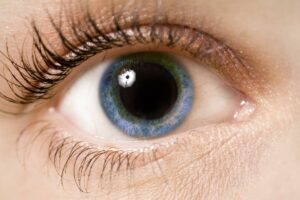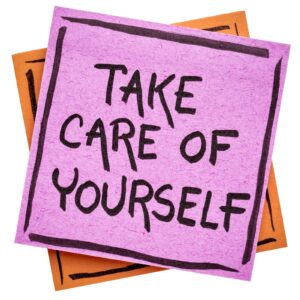Do you find yourself constantly scanning your surroundings for potential danger? Are you always on high alert, worried that something bad might happen? If so, you may be suffering from hypervigilance OCD. This is a type of OCD where the individual experiences excessive worry and anxiety about potential threats to their safety. In this blog post, we will discuss hypervigilance OCD in more detail, including the symptoms and treatment options.
Contents
What Is Hypervigilance OCD? 
Hypervigilance OCD is a subtype of OCD characterized by an excessive sense of danger and paranoia. People with hypervigilance OCD are constantly on the lookout for threats, both real and imagined.
They may be hyperaware of their surroundings, scanning for potential dangers at all times. As a result, they often live in a state of constant fear and anxiety.
Symptoms
- feeling on edge all the time
- being hyperaware of your surroundings
- always looking for potential threats
- feeling like you have to be prepared for anything that could happen
- being overly cautious in everything you do
- avoiding situations that could be potentially dangerous
- living in a state of constant fear or anxiety.
- you may find it difficult to function in day-to-day life.
The above-mentioned are some examples of Hypervigilance OCD symptoms.
What Are The Causes?
There are many potential causes of hypervigilance OCD, including:
A Traumatic Event
A traumatic event or experience can cause hypervigilance OCD. This is because the person may feel like they are in constant danger and need to be on alert at all times. This can be a very debilitating condition that prevents the person from living a normal life.
One example in this regard is a person who was in a car accident. After the accident, they may become hypervigilant with OCD and have a fear of driving. This can make it difficult for them to go to work or run errands.
Similarly, if someone grew up in a household where there was constantly yelling and fighting, they may be more likely to develop hypervigilance OCD. This is because they would have learned from an early age that the world is a dangerous place and that it is important to be on constant alert.
Other traumatic events that can contribute to hypervigilance OCD include being the victim of abuse or trauma, witnessing violence, or living in a high-crime area.
Genetics
One of the most commonly accepted causes is genetics. This reason suggests that hypervigilance OCD is passed down from parents to children through their genes.
There are a number of different studies that have been conducted on twins and families with hypervigilance OCD, which seem to support this theory. For example, if one identical twin has hypervigilance OCD, the other twin has a 50% chance of also having the condition.
Similarly, if one parent has hypervigilance OCD, there is a high chance that their child would also have the condition.
Brain Chemistry
Hypervigilance OCD is thought to be caused by an imbalance in brain chemistry. Specifically, it is believed that there is an imbalance of the neurotransmitters serotonin and dopamine. This imbalance leads to changes in brain activity which results in the symptoms of hypervigilance OCD.
Anxiety Disorders
Anxiety disorders can cause hypervigilance for a number of reasons. One reason is that people with anxiety disorders tend to be in a state of constant arousal, which means they are more easily startled and more likely to interpret everyday events as threatening.
Another reason is that people with anxiety disorders often have intrusive thoughts or images that they cannot get out of their minds, which can make them hypervigilant for signs that these thoughts might come true. For example, someone with OCD might be hypervigilant for signs that their house is going to catch fire because they are constantly thinking about the possibility of this happening.
Substance Abuse
Substance abuse can cause hypervigilance OCD in a number of ways. First, chronic use of drugs or alcohol can lead to anxiety and paranoia, which can in turn trigger hypervigilance OCD.
Second, withdrawal from substances can also cause hypervigilance OCD symptoms. Finally, using substances can lead to changes in brain chemistry that may contribute to hypervigilance OCD.
Sleep Deprivation
Sleep deprivation can cause hypervigilance OCD, as it can lead to an increase in anxiety and worry. This can be due to the fact that when we are sleep deprived, we are not able to think clearly or process information as effectively. This can lead to us feeling more anxious and on edge, as we are constantly worrying about what could happen.
For example, if you are sleep deprived, you may start to worry that someone is going to break into your house or that you will get lost in an unfamiliar place. These worries can become obsessions and compulsions in hypervigilance OCD.
Certain Medical Conditions
People suffering from PTSD are those who have experienced trauma. Such people often develop hypervigilance as a way of coping with their memories and fears. This can lead to hypervigilance OCD. People with ADHD often have trouble paying attention and may be easily distracted. This can make it difficult for them to focus on one task, which can lead to hypervigilance OCD.
Similarly, there are other medical conditions as well which cause hypervigilance OCD.
What Are The Consequences?
Hypervigilance OCD can lead to a number of consequences, including:
Physical Effects
The physical effects include the following abrupt results:
Muscle Tension Or Headaches 
Muscle tension and headaches are common symptoms of hypervigilance OCD. An individual may usually feel constantly on edge as if they are in danger. This can lead to muscle tension, as the body is preparing for a potential threat. Headaches may also occur due to the increased stress and anxiety that hypervigilance OCD causes.
Sweating Or Trembling
Hypervigilance OCD results in sweating or trembling because the individual is constantly on high alert for any potential danger. This can be extremely debilitating and make it difficult to function in day-to-day life.
For example, someone with hypervigilance OCD may avoid leaving their house out of fear of being attacked or hurt. They may also have difficulty sleeping due to constant worry and anxiety.
Shortness Of Breath
Hypervigilance OCD can result in shortness of breath or hyperventilation for a number of reasons. One reason may be due to the constant state of anxiety and fear that hypervigilant individuals live in. This constant feeling of unease and worry can lead to shallow, rapid breathing which can then cause hyperventilation.
Additionally, hypervigilant individuals may also avoid deep breathing as it can trigger a sense of panic or claustrophobia. As a result, they may take shallow breaths which also leads to hyperventilation.
Another reason why hypervigilance OCD may cause shortness of breath or hyperventilation is due to the fact that many sufferers have difficulty relaxing their muscles. This can lead to tension in the chest and shoulders which can make it difficult to take deep breaths.
Nausea Or Diarrhea
Oftentimes, people with hypervigilance OCD will experience nausea or diarrhea as a result of their constant state of fear and anxiety.
For example, someone may be afraid of contracting a disease, so they constantly check their body for symptoms. This can lead to them feeling nauseous from the worry and stress. Additionally, hypervigilant individuals may also have trouble sleeping, which can further exacerbate these physical symptoms.
Sleeping Problems
Hypervigilance OCD can result in sleeping problems for a few reasons. One reason is that people with hypervigilance OCD are constantly on the lookout for potential dangers, which can lead to sleepless nights.
Another reason is that it can cause anxiety and stress, which can also interfere with sleep. Finally, hypervigilance OCD can also cause physical symptoms such as headaches and muscle tension, which can make it difficult to fall asleep or stay asleep.
Psychological Effects
These are the emotional and sentimental side effects which include:
Difficulty Concentrating Or Paying Attention 
Hypervigilance OCD results in difficulty concentrating or paying attention because the individual is always on the lookout for potential threats. This can make it hard to focus on anything else.
For example, someone with hypervigilance OCD might be constantly scanning their surroundings for signs of danger, which makes it difficult to pay attention to anything else. Alternatively, they may be so focused on monitoring their own body for signs of illness or injury that they find it hard to concentrate on anything else.
Excessive Worry Or Anxiety
People with hypervigilance OCD live in a state of constant fear and danger. Their mind is always on high alert, looking for any potential threat. This can result in excessive worry and anxiety.
For example, someone with hypervigilance OCD may be constantly worried about being attacked or kidnapped. They may avoid going outside or taking public transportation because they fear something bad will happen to them. They may also have trouble sleeping because they are afraid of being harmed in their sleep.
Depression
Hypervigilance OCD can result in depression for a number of reasons. First, the constant state of worry and anxiety can be exhausting, both mentally and physically. This can lead to difficulty sleeping, which can further contribute to feelings of fatigue and low energy.
Second, hypervigilance can cause people to withdraw from activities they once enjoyed or avoid social situations altogether. This isolation can exacerbate feelings of loneliness and depression. Finally, the obsessions and compulsions associated with Hypervigilance OCD can take up a lot of time and energy, leaving little room for other pursuits or hobbies.
Irritability Or Moodiness
If you suffer from hypervigilance OCD, you may find yourself feeling irritable or moody much of the time. This is because you are constantly on the lookout for danger, and this can be exhausting.
You may feel like you can never relax, and that can take a toll on your emotional state. For example, you may snap at loved ones when they don’t meet your expectations for safety, or you may become withdrawn and isolate yourself to avoid potential threats.
Isolation And Loneliness
Hypervigilance OCD can result in isolation and loneliness for sufferers. This is because hypervigilance causes sufferers to constantly be on the lookout for danger, which can make it difficult to relax and enjoy social situations. Additionally, hypervigilance can lead to anxiety and paranoia, which can further isolate sufferers from friends and family.
- Constantly scanning one’s surroundings for potential threats
- Avoiding social situations due to fear of being in danger
- Isolating oneself from others out of fear of being hurt or harmed
- Paranoia about potential dangers lurking around every corner
- Anxiety about leaving the house or being in public places
The above-mentioned are some examples of how hypervigilance OCD can result in isolation and loneliness.
Relationship Problems
If you suffer from hypervigilance OCD, your mind is always on high alert, scanning for any potential danger. This can result in serious relationship problems, as your partner may feel like they can never relax around you.
For example, if you are constantly checking the locks on the doors and windows, or searching the house for potential intruders, your partner may start to feel like they are living in a prison rather than a home. If you are constantly questioning their every move and accusing them of lying or cheating, it will eventually take a toll on even the strongest relationship.
How Taking Therapies May Help?
There are various therapies that may help in relieving hypervigilance OCD. Some very significant in this regard are as follows:
Cognitive-Behavioral Therapy 
CBT is an effective treatment for hypervigilance OCD. It helps people to identify and challenge their dysfunctional thoughts and beliefs about the world. They learn to develop more realistic and healthy perspectives.
In addition, CBT teaches people how to cope with their anxiety in a more constructive way.
Exposure Therapy
Exposure therapy is an effective treatment for hypervigilance OCD. This type of therapy involves gradually exposing yourself to the things that trigger your hypervigilance, starting with the least anxiety-provoking items and working up to the most anxiety-provoking items.
The goal is to help you learn that your hypervigilant thoughts are not accurate and that you can handle exposure to the things you fear. Exposure therapy can be done in individual sessions or in group settings.
Eye Movement Desensitization And Reprocessing
EMDR is a type of therapy that can help you recover from hypervigilance. This therapy can help you process and heal the trauma that has caused your hypervigilance. EMDR is a very effective treatment for hypervigilance, and it can help you to feel safer and more secure in the world. EMDR is a great option for people who have hypervigilance OCD, and it can help you to recover from your disorder.
How Medications May Help? 
There are many different types of medications that can be used to help treat hypervigilance OCD. Some of the most common include:
- Selective serotonin reuptake inhibitors (SSRIs): SSRIs work by increasing levels of serotonin in the brain, which can help to reduce anxiety and improve mood. Examples of SSRIs include fluoxetine (Prozac), sertraline (Zoloft), and paroxetine (Paxil).
- Serotonin and norepinephrine reuptake inhibitors (SNRIs): SNRIs are another type of medication that can be used to treat hypervigilance OCD. They work by increasing levels of both serotonin and norepinephrine in the brain, which can help to reduce anxiety and improve mood. Examples of SNRIs include venlafaxine (Effexor) and duloxetine (Cymbalta).
- Tricyclic antidepressants (TCAs): TCAs increase levels of norepinephrine in the brain, which can help to reduce anxiety and improve mood. Examples of TCAs include imipramine (Tofranil) and amitriptyline (Elavil).
- Benzodiazepines: Benzodiazepines work by reducing anxiety and improving mood. Examples of benzodiazepines include alprazolam (Xanax) and lorazepam (Ativan).
It is important to note that medications should always be taken under the supervision of mental health professional. This is because they can have potential side effects, and they may interact with other medications that you are taking. If you think that you might benefit from taking medication for hypervigilance OCD, make sure to talk to your doctor or mental health provider. They will be able to help you make the best decision for your specific situation.
How Self-Care Strategies May Help? 
Hypervigilance OCD can be extremely debilitating, making it hard to concentrate or even sleep. However, there are a few self-care strategies that can help lessen the symptoms:
• Understand your triggers: What sets off your hypervigilance? Is it certain people, places, or things? Once you know what your triggers are, you can start to avoid them.
• Practice relaxation techniques: Relaxation techniques such as deep breathing and progressive muscle relaxation can help reduce anxiety and ease tension.
• Exercise: Exercise releases endorphins which have mood-boosting effects. A regular exercise routine can help improve your overall mood and well-being.
• Get enough sleep: Hypervigilance can make it hard to fall asleep or stay asleep. Make sure to get enough rest by sticking to a regular sleep schedule and creating a relaxing bedtime routine.
• Talk to someone: Talking to a trusted friend or family member about your OCD can help you feel supported and less alone. You may also want to consider talking to a therapist who specializes in treating OCD.
Following these self-care strategies can help lessen the symptoms of Hypervigilance OCD and improve your overall well-being. However, if you are still struggling, please reach out for professional help. You don’t have to suffer from this debilitating disorder alone.
Conclusion
Hypervigilance OCD can cause a person to live in fear and anxiety. Therefore, it is important to get help from a mental health professional if you think you may have this disorder. Hypervigilance OCD is treatable, and with the right treatment, you can live a healthy and happy life.
There are many resources available to assist you in getting the treatment you need. You are not alone in this battle. Remember that with the proper support, anything is possible. Don’t live in fear any longer. Seek help and start living the life you deserve today.
Professional Guidance is the first step in order to move toward your healing journey. You can try reaching Mantra Care to seek expert help in the comfort of your own home. Our therapists will help you get a solution to manage and overcome your problem. You can book your online therapy and talk directly to your assigned mentor. You may also download our free Android or iOS app.









